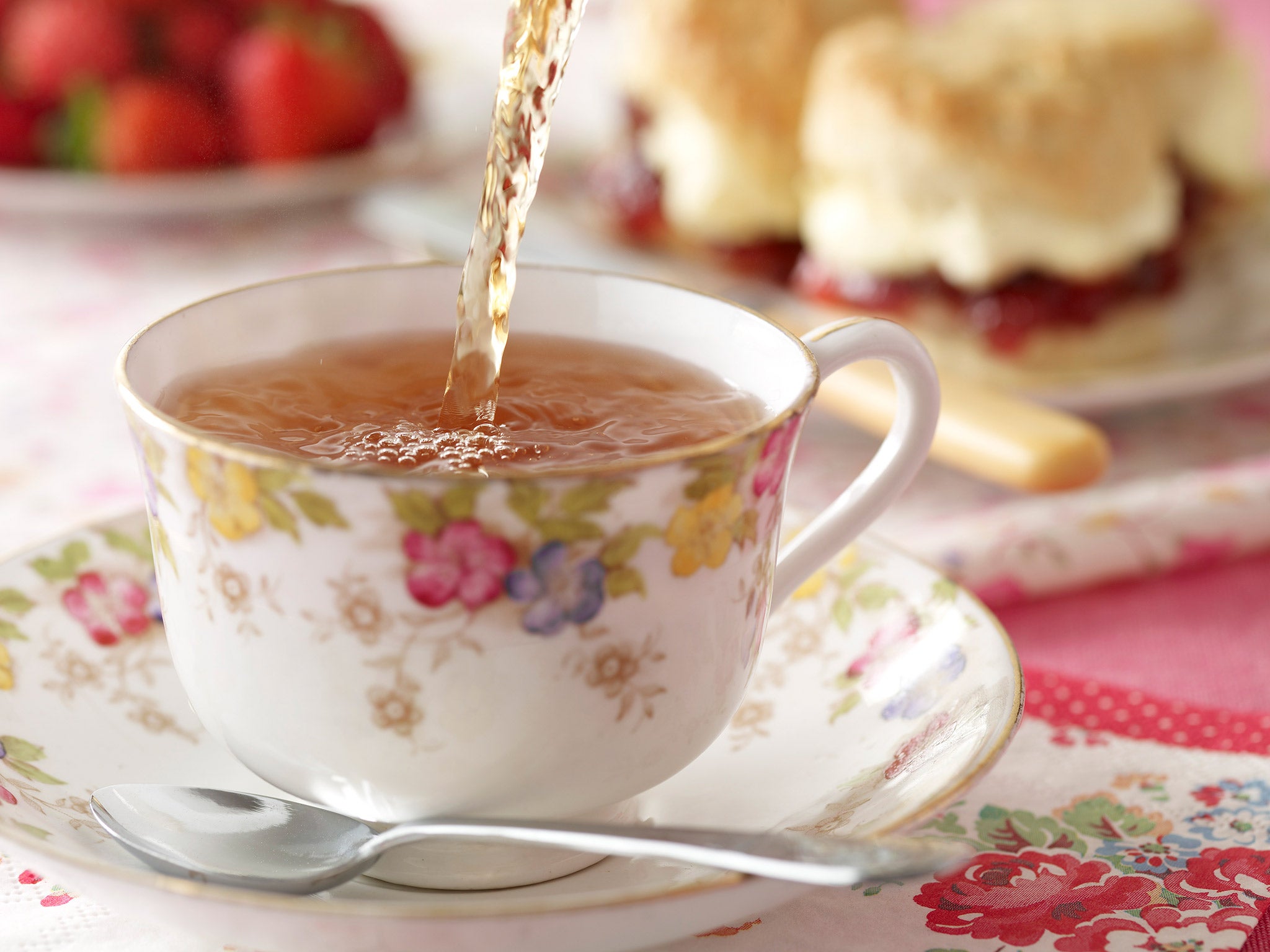Tea sales in decline as Britons desert black tea for more exotic brews
Between 2010 and 2015 the overall volume of tea sold in the UK slumped by 22 per cent

It has long been the staple beverage of British breakfast tables and is regarded by many as the national drink. But the humble cup of tea is now in serious decline as people turn to healthier herbal alternatives, according to research published on 5 August.
Between 2010 and 2015 the overall volume of tea sold in the UK slumped by 22 per cent, from 97 million kilograms to 76 million. The fall is “almost completely attributable to diminishing sales of ordinary teabags”, the study by global market research agency Mintel concluded.
Sales of standard black teabags dived by 13 per cent between 2012 and 2014, but over the same period alternative teas enjoyed strong growth. Green teabag sales rose by 50 per cent, fruit and herbal teabags by 31 per cent and speciality blends such as Earl Grey, Darjeeling and Assam by 15 per cent.
Retail analysts said the switch from ordinary tea to fruit or herbal alternatives may be partially explained by growing health awareness among the public, as the latter are not typically taken with milk and sugar. The rise of “foodie” culture may also be a factor, with regular black tea seen as unexciting compared to other blends.
Emma Clifford, senior food and drink analyst at Mintel, said the decline may also be tied to dwindling cake and biscuit sales. “It is widely accepted that tea is a good accompaniment to biscuits and cakes. Given the sugar scare, however, and that usage of such treats is in decline, these strong associations could have had a negative impact on the tea market,” she said.
Last month, official statistics revealed that sausages, another staple of the British breakfast table, are also falling out of favour with the public who are turning to healthier meats containing less salt and fat. According to the Office for National Statistics, sales of sausages have slumped by more than £2bn a year – a drop of more than a quarter since 2008.
Acknowledging that the “fairly mundane” image of tea was a challenge to the market, the Mintel analysts suggested that manufacturers should consider introducing “extreme flavours” to make the beverage appeal to younger consumers who regarded it as dull.
“Spicy flavours such as wasabi or Szechuan pepper or extreme sour flavours – as seen in the sugar confectionery market – should grab the attention of the most experimental ‘foodie’ consumers,” it said.
However, the study also confirmed that tea is still a staple drink for millions of Britons. More than half of the population (54 per cent) drink at least one cup of ordinary tea a day, with men aged between 16 and 44 the biggest consumers. Almost three quarters typically drink it in the morning, while two thirds drink it in the afternoon.
Bill Gorman, chairman of the tea industry body the UK Tea and Infusions Association, said that the UK was “still a nation of tea drinkers” and that Ireland was the only country in the world which consumed more per head.
“The tea industry has been very slow to innovate, the coffee boys have been way ahead of us,” he said. “But now we’re producing a range of products – speciality teas, herbal fruit infusions – which is appealing to consumers. There is a shift away from the classic black blended tea onto speciality teas.”
How tea has changed
With the British desire for a cup of traditional black tea on the wane, manufacturers both large and small have been frantically developing new herbal blends and fruit infusions to keep their brands afloat. Some of the new flavours play up the health benefits of drinking tea, while others appeal to audiences with more adventurous tastes or court consumers in search of a guilt-free treat.
Pukka Herbs, the organic tea company which produces flavours such as Lemon, Ginger and Manuka Honey (“a welcoming cup of spicy-sweet organic bliss”) and Supreme Matcha Green (“a vital wellspring of organic whole leaf green tea and the finest matcha”) launched more new products than any other tea maker last year.
PG Tips, one of the UK’s most popular tea brands, has also started a Fruit & Herbal Infusions range which it expanded earlier this year to include flavours such as Vibrant Blackcurrant, Crisp Mint, Zesty Lemon & Ginger and Delicious Cranberry & Apple. The company now offers seven fruit and herbal teas and six green teas.
Twinings, another big player in the British tea market, launched a Sweet Green Tea range last year which included a range of dessert-style flavours such as Gingerbread and Salted Caramel. Earlier this year, it added some even more peculiar infusions, including Fudge Melts and Cherry Bakewell.
Not to be left out, Tetley launched five new green tea blends at the start of 2014, featuring fruity flavours such as Mango & Passionfruit and Peach & Apricot. In an industry first, it also launched a range of Super Green Tea fortified with vitamins earlier this year. The Berry Boost flavour is described as being packed with vitamin B6 to “reduce tiredness and fatigue”, while the Lemon & Honey version apparently contains vitamin C to “support your immune system”. The packaging makes both flavours look like something you might find in a chemist’s cold and flu aisle.
Subscribe to Independent Premium to bookmark this article
Want to bookmark your favourite articles and stories to read or reference later? Start your Independent Premium subscription today.

Join our commenting forum
Join thought-provoking conversations, follow other Independent readers and see their replies